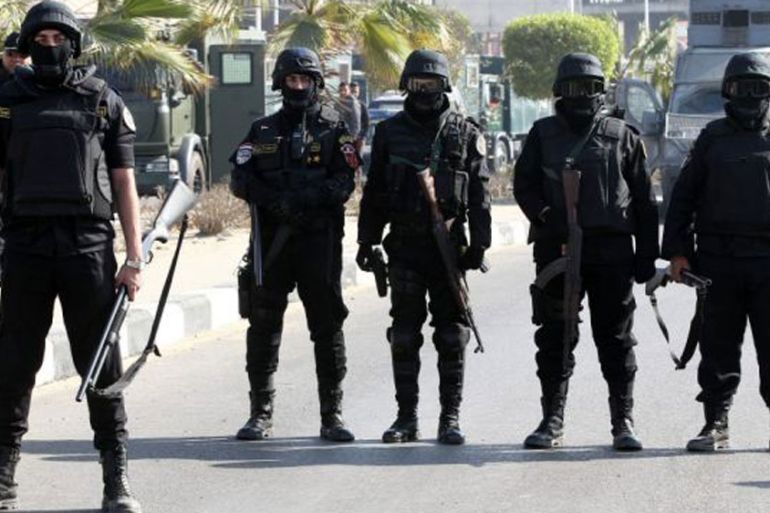Protest in Cairo over policeman killing of tea vendor
Hundreds take to streets after shooting sparked by argument over price of cup of tea between officers and street vendor.

Hundreds of people took to the streets of Egypt’s capital to protest after an Egyptian police officer shot dead a street vendor and injured two others, state media said, in what was the latest in a series of incidents that have triggered public outrage over police abuses.
Hesham Amer, police chief of the New Cairo district, said that three policemen argued with a street vendor over the price of a cup of tea, then one of them shot three people in the eastern Cairo suburb of Rehab.
The official news agency MENA quoted an unnamed security source as saying that the Interior Minister Magdy Abdel-Ghaffar referred the police officer to the prosecutor’s office over the shooting.
It also said that the wounded were taken to hospital.
Photos and video clips circulated on social networking sites showed crowds smashing a police car and ambulance as they blocked a road while chanting “the police are thugs”.
The body of the dead vendor was seen lying in the street. Police sealed the area and deployed riot squads to disperse the crowd.
More violence broke out when police and an ambulance tried to take away the body of the dead vendor, state-run newspaper Al-Ahram reported on its website. The crowd was later dispersed, it said.
INSIDE STORY: What will stop police brutality in Egypt?
Human rights groups say that a culture of impunity among the Egyptian security forces has led to widespread police brutality. Trials in such cases are rare and when they do occur, sentences are usually appealed and subsequently reduced.
Earlier this month, a policeman was sentenced to life in prison after he was found guilty of killing a 24-year old taxi driver in February.
Allegations of abuse by police were among the main causes that triggered the 2011 upraising that deposed President Hosni Mubarak.